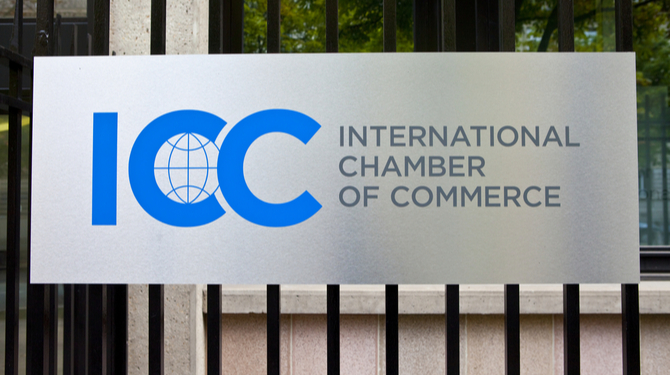Sign up for our free daily newsletter
YOUR PRIVACY - PLEASE READ CAREFULLY DATA PROTECTION STATEMENT
Below we explain how we will communicate with you. We set out how we use your data in our Privacy Policy.
Global City Media, and its associated brands will use the lawful basis of legitimate interests to use
the
contact details you have supplied to contact you regarding our publications, events, training,
reader
research, and other relevant information. We will always give you the option to opt out of our
marketing.
By clicking submit, you confirm that you understand and accept the Terms & Conditions and Privacy Policy
The International Council of Commercial Arbitration (ICCA) finally launched its 25th Congress this week after being twice postponed due to Covid-19.
The four-day event opened in Edinburgh on Sunday, with more than 1,300 delegates registered to attend. Titled ‘Arbitration’s Age of Enlightenment?’, the Congress aims to take stock of past achievements and explore ideas to adapt to a fast-changing environment, and shape the future of international arbitration.
In a joint statement, ICCA’s programme committee chairs Cavinder Bull SC of Singapore, 39 Essex Chambers’ Loretta Malintoppi and Three Crown’s Constantine Partasides KC, said: “The Congress takes inspiration from some of the themes of Enlightenment – knowledge, the exchange of ideas, innovation and progress – and develops them as threads running through the various panels.
“By including novel ideas and voices that emanate from new centres of arbitration activity and from beyond our field, we hope that ICCA 2022 will provide a substantive contribution to the international arbitration community.”
Delegates participated in a welcome ceremony that mixed Scottish traditional music, culture and poetry, with addresses on progress in international arbitration, including introducing the Scottish Arbitration Centre’s own rules that will allow it to administer cases.
Congress chair, Brandon Malone, of Arbitra International – who will step down as the Scottish Arbitration Centre (SAC) chair after the Congress – spoke about the 12-year journey taken to set up the Centre. He stressed arbitration’s commercial imperatives, noting that while many nations benefited from those strengths, comparatively few centres benefited apart from the well-known ones.
Arbitration’s benefits should be more equally distributed, helping to improve its legitimacy and understanding, which would benefit dispute resolution as a whole, said Malone. He added: “It is in all our interests that developing seats are successful.”
Twenty Essex’s Lord Glennie, who will succeed Malone, also launched the new Scottish Arbitration Centre rules, which include specific provisions encouraging greener arbitration, promoting diversity in the selection of arbitrators and enshrine a commitment to data protection and cybersecurity.
On sustainability, the rules adopt the Green Protocols of the Campaign for Greener Arbitration. On diversity, the rules adopt the principles of the ERA Pledge and the Racial Equality for Arbitration Lawyers as guidance, allowing for gender and racial parity in appointments and for neutral chairman to be appointed from different nationalities to those of parties.
Malone said the SAC rules offered “a robust and safe alternative [to other rules] while [enabling] the arbitration community to address some of the most pressing contemporary issues.”
The SAC also announced a new casework management system, delivered by Opus 2, which Malone said would deliver “an innovative, efficient and first-class … solution [with] cybersecurity at its heart and enables us to put our commitment to greener arbitrations into practice.”
Also speaking alongside Malone were ICCA president Lucy Reed and her predecessor Gabrielle Kaufmann-Kohler. Reed stressed the importance of arbitration in promoting peaceful dispute resolution between nations, businesses and individuals.
Reed said it was “more important than ever to reaffirm the value of dispute settlement” following the pandemic, while also urging arbitration to find better balance between enjoying the status quo – and preserving it for the future.
Delegates also observed a two-minute silence during the event to mark the passing of Her Late Majesty Queen Elizabeth II.
The ICCA , meanwhile, announced that Madrid would be the host city for the 2026 Congress, with Hong Kong – under strict pandemic-era health restrictions, slowly easing – due to hold the next Congress in 2024.
Madrid, which has never hosted the ICCA, won over rival bids from Dubai, Vancouver and Kigali. Hosting the Congress will be the Spanish city’s most significant legal event since the 2009 IBA Annual Conference.
The Global Legal Post will be publishing a Law Over Borders comparative guide to arbitration. For further details email associate publisher [email protected]
Email your news and story ideas to: [email protected]











